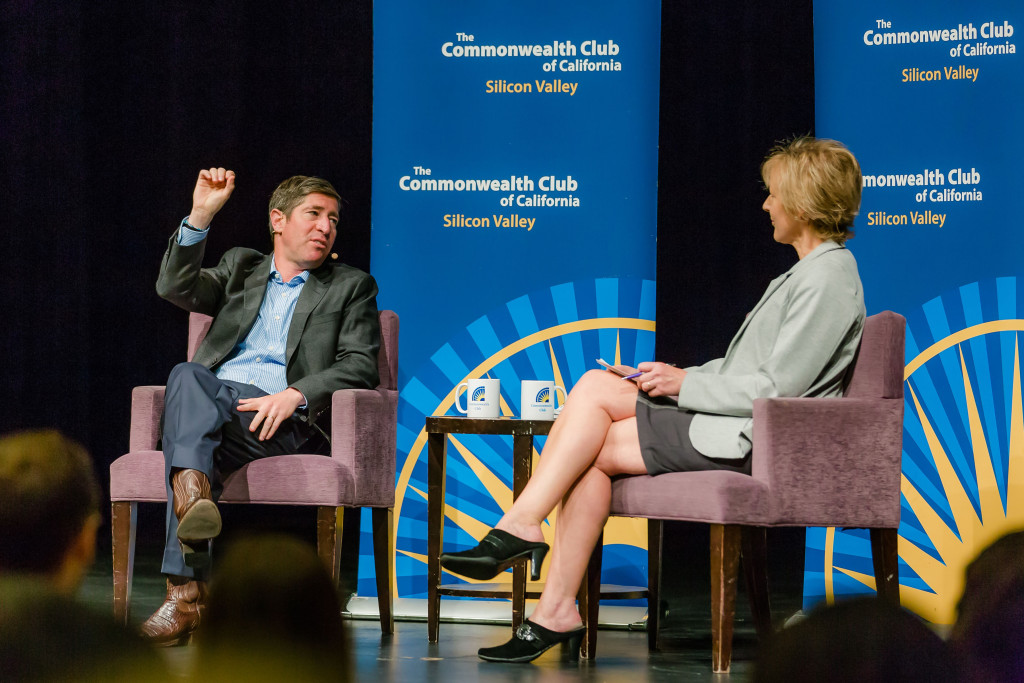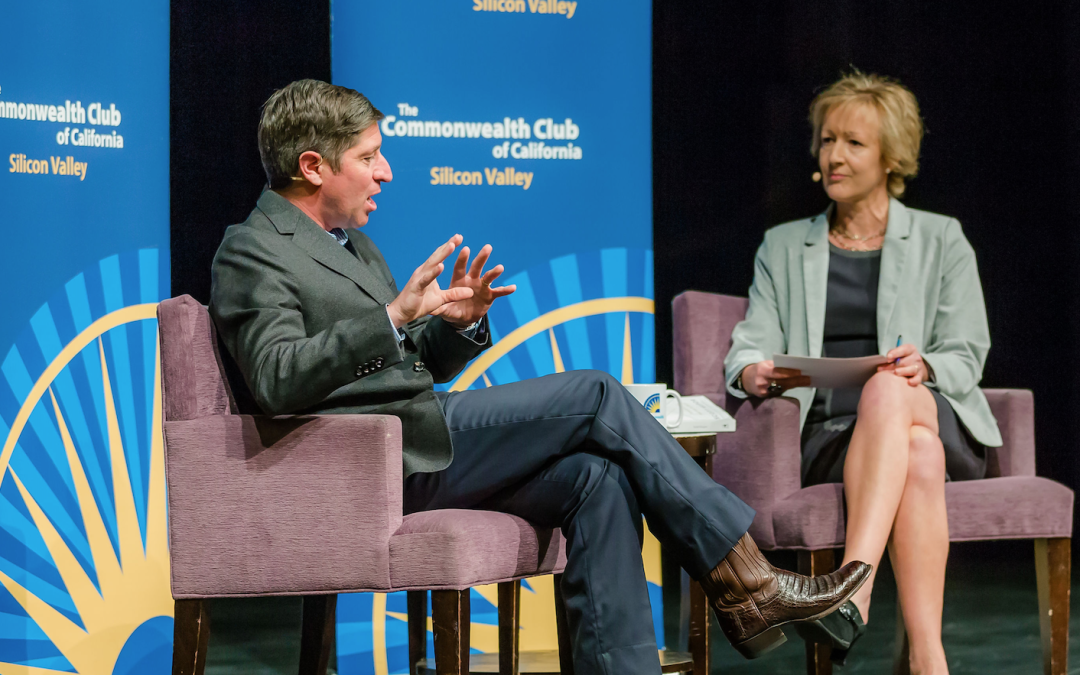Have you ever wondered how venture capitalists in Silicon Valley decide what startups to fund and what ones to skip? I had the opportunity to sit down with one of these “masters of the universe” and explore the secrets of venture capital. Scott Kupor is managing partner at Andreessen Horowitz (AH) – one of the most successful VC firms in the world – and we had a candid and lively discussion about the do’s and don’ts of pitching; lessons from Elon Musk’s entrepreneurial journey; diversity, bias and ethics; future trends; and when it’s OK to move fast and break things. Scott teaches at Stanford and Berkeley and has a new book out – Secrets of Sand Hill Road – that aims to demystify the VC mindset. The conversation took place in front of a live audience at the Commonwealth Club in Silicon Valley on June 10, 2019.
Listen to the Fresh Dialogues podcast:
Here are some highlights of our conversation (edited for length and clarity):
Re. Women in business, diversity and bias
Alison van Diggelen: Let’s talk about diversity: Julian Guthrie’s new book is just out – called Alpha Girls – it’s about four women who took on the Venture Capital “bad boys” and succeeded, despite the odds. There are some good lessons in there. It’s a very tough place to thrive as a woman. Less than 10% of decision makers in the venture capital world are women.
Scott Kupor: The number is about 10 or 12 %, depending how you cut the numbers, and about 2% of the funding going to female founders. It’s a real problem.
There are two types of bias: explicit bias, which clearly the #MeToo Movement exposed in a very horrible way. We have to root that stuff out. We need to shine the light on what was underground for many years. The more challenging problem is implicit bias…Whether I like it or not, I’m implicitly biased by the networks I came from. When I want to hire for a job, it’s more likely I go to people I know from Stanford. What we have to do is reach out to (other) networks. So we proactively send out job recs to MLT a group that works with African Americans who’re trying to get into business and financials; and we also have a Cultural Leadership Fund (at AH).
It’s a network connectivity problem. It’s going to take time, it’s a deep rooted problem.
Alison van Diggelen: How many general partners at Andreessen Horowitz are women?
Scott Kupor: 20%. Three out of fifteen are women. That’s only in the last two years. For the first eight years we did not have any female partners…We changed our criteria and opened up the funnel to have a more diverse talent pool.
Re: Ethics and moving fast and breaking things
Alison van Diggelen: Let’s talk about ethics: lessons learned from Theranos (the blood testing company that imploded). And Facebook: they used to have a mantra: Move fast and break things. They have been cavalier about sharing our personal data. How do you train your entrepreneurs to have ethics front and center?
Scott Kupor: I think there’s a difference between outright fraud – we can’t have behavior like that in this industry – and there is this idea that sometimes you have to push faster than sometimes is comfortable and you do break things sometimes and ask for forgiveness second. I think there are elements of that that are fine in this business. There’s a difference between committing crimes and defrauding people and are you just trying to move the ball quickly? You recognize there’s going to be iteration of products and sometimes you’re going to put stuff out that may not be perfect.
The big difference is: as companies mature it’s a bit of the Elon Musk question (we talked about earlier) – I think different standards of behavior are appropriate depending upon the size and maturity of these companies. Running fast and breaking things – and putting out half baked products – is not as unacceptable in the pure startup world where the scope of the harm potentially is smaller because you’re still dealing with small amounts of customers, but when you get to the scale of a Facebook, you have a different responsibility. Our best bet on our companies is to use our persuasive techniques to make them value these things. Over time, your level of responsibility changes, based upon your success. At some point in time you have to act like the navy – not a pirate – once you conquer the ship.
Alison van Diggelen: Are you saying it’s OK to be a pirate in the early stages of a startup?
 Scott Kupor: It depends on what pirate means (audience laughter).
Scott Kupor: It depends on what pirate means (audience laughter).
Fraud and misleading people is clearly not right. But the idea that you might enter into a market where you’re not exactly sure what the product should look like, you might have a theory on what your regulatory structure is, but you’re not 100% sure.
I’ll give you a great example: we’re investors in Airbnb and Lyft. These companies probably couldn’t have been successful if they’d asked for permission every time they went into a new market. You could argue that was unethical: They should’ve got permission first. The reality is, they said: we’re going to go into a new market, we believe we have a defensible theory that why what we’re doing is appropriate from a regulatory perspective, but we also know we’re likely to get challenged on that. But over time, if a consumer utility is big enough, there is a way to deal with these issues. So that’s my definition of a pirate: I think that’s reasonable acceptable behavior. Fraud and misleading people is not acceptable behavior.
We also discuss:
The do’s and don’ts of pitching Venture Capitalists @29:00 in the Commonwealth Club podcast
Lessons from Elon Musk’s entrepreneurship @20:00
Chinese investments, IP theft @40:00
Future trends in the economy; crowdfunding, competition in venture capital @58:00
Women in business, diversity and bias @48:00
Ethics, Theranos @54:00
Find out:
More about the VC Mindset from my interviews with Steve Jurvetson
More insights on Entrepreneurship at Fresh Dialogues




